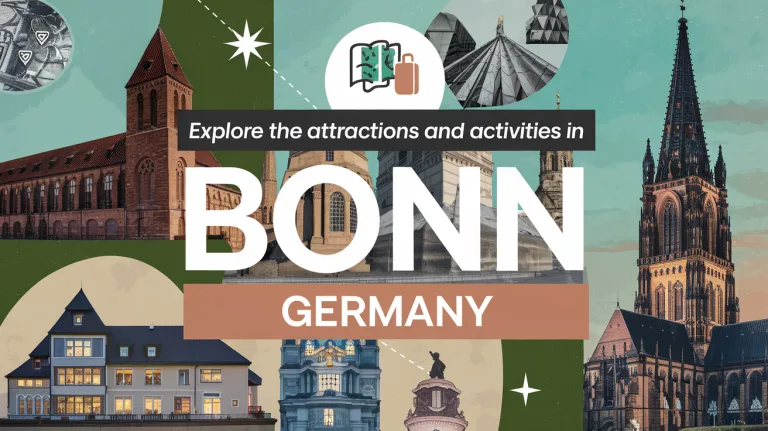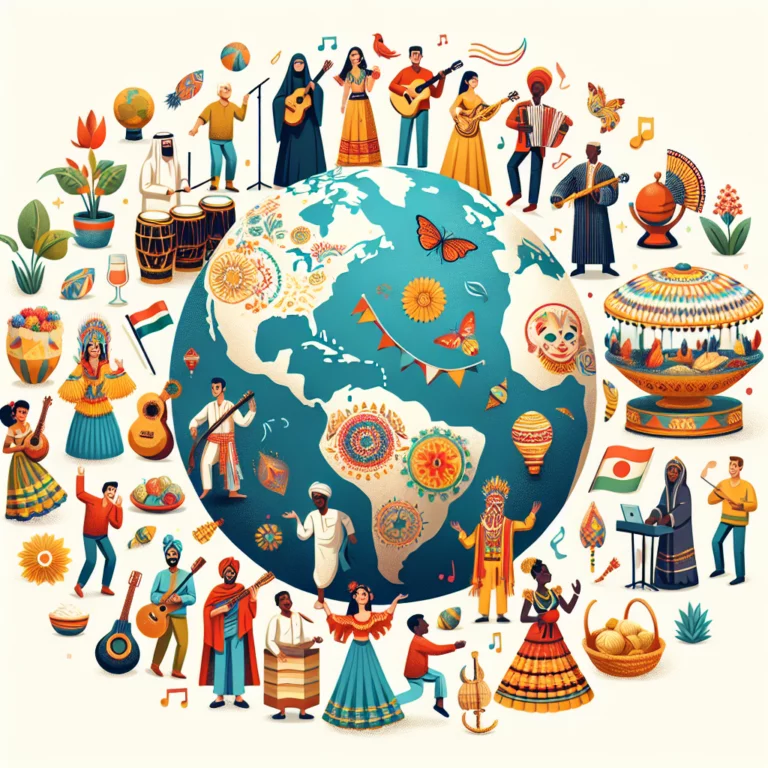Language Learning Journeys: Immerse Yourself In A New Culture
Embark on a language learning journey and immerse yourself in a new culture through the captivating experiences offered by Best Travel Dealz. Discover the diverse tapestry of cultural experiences available around the globe, from savoring traditional delicacies to immersing yourself in the vibrant art scenes. These language learning journeys are designed to inspire and inform, providing a well-rounded perspective on cultural exploration. Whether you have a passion for exploring new cuisines, delving into traditional practices, or discovering modern expressions of culture, these journeys offer the perfect opportunity to broaden your horizons and learn a new language in the process. Get ready to embark on a transformative adventure of language discovery and cultural immersion.
Understanding the Importance of Language Learning
Language learning is an essential tool for connecting with people from different cultures and promoting cross-cultural understanding. By learning a foreign language, you can gain a deeper insight into the customs, traditions, and values of a particular culture. Language and culture are intricately linked, and understanding the language opens doors to a wealth of experiences and opportunities.
Connection Between Language and Culture
Language and culture are inseparable. Language reflects the beliefs, values, and unique identity of a particular community. When you learn a new language, you also gain a deeper understanding of the cultural nuances and intricacies. Whether it’s through idioms, proverbs, or even slang, language holds the key to unlocking a culture’s essence. By studying a language, you can immerse yourself in its rich history, literature, and traditions, allowing you to connect with people on a deeper level.
Enhancing Travel Experiences through Language
Traveling to new destinations becomes even more enriching when you can communicate effectively with locals. Learning the language of your desired destinations allows you to step off the beaten path and engage authentically with the local community. From ordering a meal at a local eatery to asking for directions, speaking the local language bridges the gap between you and the people you meet along your journey. It opens up doors to meaningful connections, local insights, and a deeper appreciation for the place you are visiting.
Promoting Cross-Cultural Understanding
In an increasingly interconnected world, cross-cultural understanding is crucial. Language learning plays a fundamental role in fostering this understanding. By learning another language, you gain a fresh perspective on the world and challenge your own cultural assumptions. It promotes empathy, respect, and tolerance, as you begin to grasp the complexities and diversity of human experiences. Language learning breaks down barriers, both linguistic and cultural, fostering a more inclusive and harmonious global community.
Choosing the Right Language to Learn
When embarking on a language learning journey, it’s important to identify the language that aligns with your interests and goals. Consider the following factors to help guide your decision-making process.
Identifying Your Travel Interests
Reflect on your travel interests and aspirations. Are you drawn to a specific country or region? Do you have a passion for its history, art, or cuisine? Choosing a language associated with your travel interests can make learning more enjoyable and relevant. It allows you to dive deeper into the culture and fully immerse yourself in your chosen destination.
Determining Useful Languages in Desired Destinations
Practicality should also inform your language choice. Consider the languages spoken in your desired destinations. Is there a dominant language that will facilitate communication during your travels? Prioritizing useful languages spoken in your desired destinations can enhance your travel experiences and interactions with locals. It shows respect for the local culture and breaks down language barriers.
Considering the Complexity of the Language
Be mindful of the complexity of the language you wish to learn. Languages differ in terms of grammar, pronunciation, and writing systems. Some languages may pose more challenges for English speakers than others. While learning a complex language can be rewarding, it requires dedication and perseverance. Consider your own learning style and the time and effort you are willing to invest in mastering a new language.
Effective Language Learning Strategies
Once you have chosen a language to learn, it’s crucial to adopt effective strategies and techniques that suit your learning style and goals. Here are some strategies to help you on your language learning journey:
Incorporating Language Learning into Daily Routine
Consistency is key when learning a new language. Find ways to incorporate language learning into your daily routine. Set aside dedicated time each day for studying vocabulary, grammar, and practicing conversation. Additionally, leverage everyday situations to practice your language skills, such as labeling objects in your home with their foreign language equivalents.
Leveraging Technology for Language Learning
In today’s digital age, technology provides numerous resources for language learning. Explore language learning apps, online courses, and podcasts that cater to your specific language needs. These tools offer interactive exercises, pronunciation guides, and real-life conversations that simulate immersive language experiences. Take advantage of these technological advancements to enhance your language learning journey.
Joining Language Learning Communities
Connecting with fellow language learners can greatly enrich your learning experience. Join language learning communities, either online or in-person, to share resources, practice conversation, and receive guidance. Engaging with others who share your language learning goals provides motivation, accountability, and a supportive network that helps you overcome obstacles along the way.
Immersing in the Language Through Cultural Activities
To truly immerse yourself in a language, it’s essential to engage in cultural activities that go beyond language learning textbooks. These activities allow you to experience the language in its authentic context and deepen your understanding of the culture. Here are some ways to immerse yourself in the language through cultural activities:
Exploring Foreign Cuisine
Food is a universal language that transcends cultural boundaries. Indulge in the diverse flavors of a foreign cuisine to experience the language in a sensory and cultural context. Visit local markets, try traditional dishes, and engage in conversations with chefs and food vendors. Not only will you expand your palate, but you’ll also uncover the cultural stories and traditions behind each dish.
Engaging in Local Arts and Crafts
Art is another powerful medium for cultural immersion. Attend local art exhibitions, visit museums, or try your hand at traditional arts and crafts. Through these activities, you can explore the artistic expressions of the culture, learn about historical influences, and interact with local artists. Engaging in the creative side of a culture will provide you with unique insights and a deeper appreciation for the language.
Participating in Traditional Celebrations
Traditional celebrations offer a window into a culture’s customs, rituals, and beliefs. Attend festivals, religious ceremonies, or seasonal celebrations to witness firsthand how the language comes alive in celebratory contexts. By actively participating in these events, you’ll deepen your understanding of the cultural significance behind the language, forging connections with locals and creating lasting memories.
Travel as a Learning Opportunity
Traveling provides a unique platform for language learning, allowing you to put your skills into practice and learn from real-life situations. Here are ways in which travel can enhance your language learning journey:
Benefiting From Real-Life Language Usage
While learning a language within a classroom or online setting is valuable, the real test comes when you step foot in a foreign country. In these immersive environments, you’ll encounter native speakers, street signs, and conversations that challenge your language skills. Embrace these authentic experiences as opportunities to practice and refine your language abilities in real-life situations.
Learning through Interactions with Locals
Interacting with locals is an invaluable aspect of language learning while traveling. Engage in conversations with native speakers, whether it be ordering food, asking for directions, or simply striking up a conversation at a local cafe. Native speakers can provide valuable feedback, correct your mistakes, and offer cultural insights that textbooks might not cover. Don’t be afraid to make mistakes; remember that the best way to learn is through practice and real-life interactions.
Understanding Culture through Language
Language is an integral part of a culture’s identity. By learning a foreign language, you gain a deeper understanding of the cultural nuances, social norms, and values of a community. As you navigate a new culture, pay attention to the gestures, expressions, and phrases used by locals. Language serves as a gateway to understanding the nuances of social interactions, humor, and etiquette, allowing you to engage more authentically with the local culture.
Fostering Cultural Understanding through Language
Language learning goes beyond mastering vocabulary and grammar; it plays a pivotal role in fostering cultural understanding. Here are some ways in which language learning promotes cultural appreciation and breaks down cultural stereotypes:
Appreciating Cultural Similarities and Differences
Languages are deeply rooted in their respective cultures, reflecting the historical, social, and geographical contexts in which they developed. By learning a foreign language, you become aware of the similarities and differences between your own culture and the target culture. This newfound perspective fosters appreciation for diverse perspectives, cultivates empathy, and nurtures an open-minded approach to cultural differences.
Promotion of Respect and Tolerance
Language learning can act as a bridge between cultures, promoting respect and tolerance. By investing time and effort into learning another language, you show respect for the culture and its people. It sends a message that you value their language and are willing to engage in mutual understanding. This mindset encourages open dialogue, breaks down stereotypes, and fosters harmony between diverse communities.
Eradicating Cultural Stereotypes
Preconceived notions and stereotypes can hinder intercultural understanding. Language learning provides an opportunity to challenge these stereotypes head-on. As you learn about a culture’s language, you’ll gain a more nuanced perspective on its people, history, and traditions. By actively immersing yourself in the language, you dispel myths, broaden your worldview, and contribute to a more inclusive and diverse society.
Dealing with Language Barriers
Language barriers can be intimidating, but with the right mindset and strategies, they can be overcome. Here are some ways to navigate language barriers effectively:
Overcoming Fear of Making Mistakes
Fear of making mistakes is a common hurdle in language learning. Remember, making mistakes is a natural part of the learning process. Embrace your errors as opportunities for growth and improvement. Native speakers will appreciate your efforts, even if you stumble or mispronounce words. Approach language learning with a positive attitude, and don’t let fear hold you back from engaging in conversations.
Useful Tactics to Circumvent Language Impasses
When faced with a language impasse, it’s essential to have strategies to navigate the situation. Non-verbal communication, such as gestures, hand signals, and facial expressions, can bridge the gap when words fail. Use visual aids, physical objects, or online translation tools to clarify meaning. Breaking down complex ideas into simpler phrases or asking for clarification can also help overcome language barriers and ensure effective communication.
The Power of Body Language and Non-Verbal Communication
In situations where verbal communication is challenging, body language and non-verbal communication become invaluable. Pay attention to cues such as facial expressions, gestures, and tone of voice to interpret meaning. Adopt an open and friendly demeanor to build rapport and establish a connection. By being attentive to non-verbal cues, you can enhance your ability to understand and be understood, even in the absence of a shared language.
Language Learning and Personal Growth
Language learning goes beyond the acquisition of a new skill; it fosters personal growth and development. Here are some ways language learning contributes to personal growth:
Boosting Cognitive Abilities
Learning a new language stimulates cognitive function and enhances brain health. It improves memory, problem-solving skills, and multitasking abilities. Language learning challenges the brain to think in new and different ways, resulting in improved cognitive flexibility and creativity. By engaging in the mental gymnastics required for language acquisition, you are actively strengthening your brain.
Enhancing Empathy and Global Perspective
Language learning promotes empathy and a global perspective. Through exposure to different languages and cultures, you develop a deeper understanding of the world’s interconnectedness. Learning about different cultures sensitizes you to diverse perspectives, cultivating empathy and a willingness to embrace differences. By stepping outside your comfort zone and embracing linguistic and cultural diversity, you broaden your horizons and become a more compassionate global citizen.
Contributing to Individual’s Confidence and Self-Esteem
Language learning can boost confidence and self-esteem. As you progress in your language skills, you gain a sense of accomplishment and self-assurance. Communicating in a foreign language, even if it’s just a few simple phrases, instills a sense of pride in your abilities. Additionally, language learning opens doors to new opportunities, such as travel, career prospects, and personal connections, further enhancing your overall confidence and self-esteem.
Learning Beyond the Textbook
While textbooks provide a solid foundation, it’s important to explore language learning beyond the confines of formal education. Here’s how you can supplement your language learning journey:
Incorporating Local Slang and Idioms
To truly grasp a language’s nuances, familiarize yourself with its slang and idiomatic expressions. These colorful phrases are integral to daily conversations and offer insights into the culture’s values and unique qualities. Engage with locals, watch local movies or TV shows, and read modern literature to immerse yourself in the linguistic richness of the target language.
Understanding Sociocultural Contexts
Language is deeply influenced by sociocultural contexts. To fully comprehend a language, delve into its sociocultural aspects. Learn about the historical events, social structures, and cultural norms that shape the way language is used. By understanding the sociocultural nuances, you’ll gain a deeper appreciation for the language and its significance within the culture.
Embracing Language Evolution
Languages are in a constant state of evolution. Embrace the ever-changing nature of language and stay open to new linguistic developments. Follow current events, stay updated on popular culture, and adapt to changes in language usage. By embracing language evolution, you ensure that your language skills remain relevant and adaptable in an ever-changing world.
Language Learning as a Continuous Journey
Language learning doesn’t end when you reach a certain level of proficiency. It is a continuous journey that evolves with time and practice. Here are some considerations to keep in mind for your ongoing language learning:
Maintaining Language Skills Post-Travel
After returning from your travels, it’s essential to maintain and reinforce your language skills. Practice regularly through conversation exchanges, language apps, or online communities. Continue engaging with native speakers, watch movies or TV shows in the target language, and read books or articles to keep your language skills sharp.
Embracing Lifelong Language Learning
Language learning is a lifelong endeavor. Even if you have achieved fluency in one language, consider expanding your linguistic repertoire by exploring new languages. Lifelong language learning broadens your horizons, keeps your brain active, and opens doors to new cultures and experiences.
Influence of Language Learning on Future Travel Plans
Language learning can influence your future travel plans. By mastering a language, you may develop a strong affinity for the culture and seek out opportunities to delve further into it. You may find yourself drawn to destinations where the language you have learned is spoken, eager to put your language skills to use and deepen your understanding of the culture.
In conclusion, language learning is a gateway to cultural immersion, fostering cross-cultural understanding, and enhancing travel experiences. By choosing the right language, adopting effective learning strategies, immersing in the language through cultural activities, and embracing the continuous journey of language learning, you embark on a transformative experience that not only expands your linguistic abilities but also enriches your personal growth and global perspective. So, seize the opportunity to immerse yourself in a new culture and embark on your language learning journey today!






